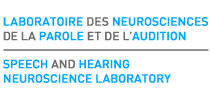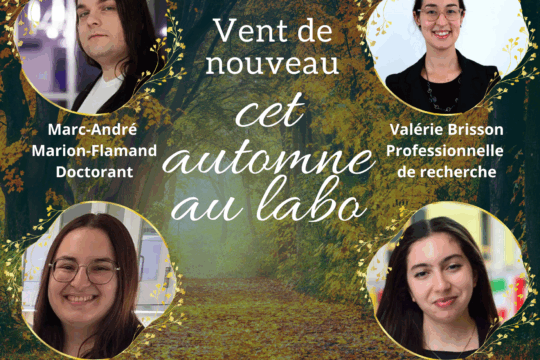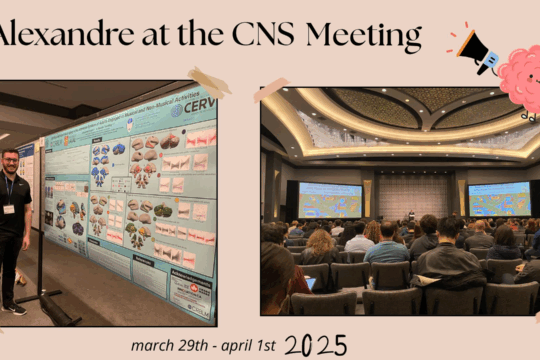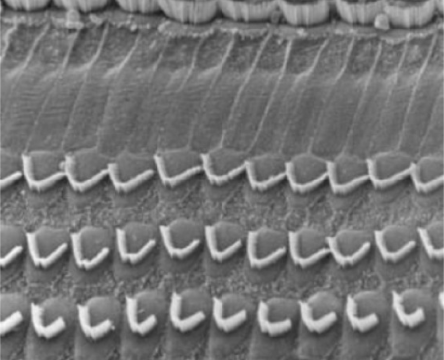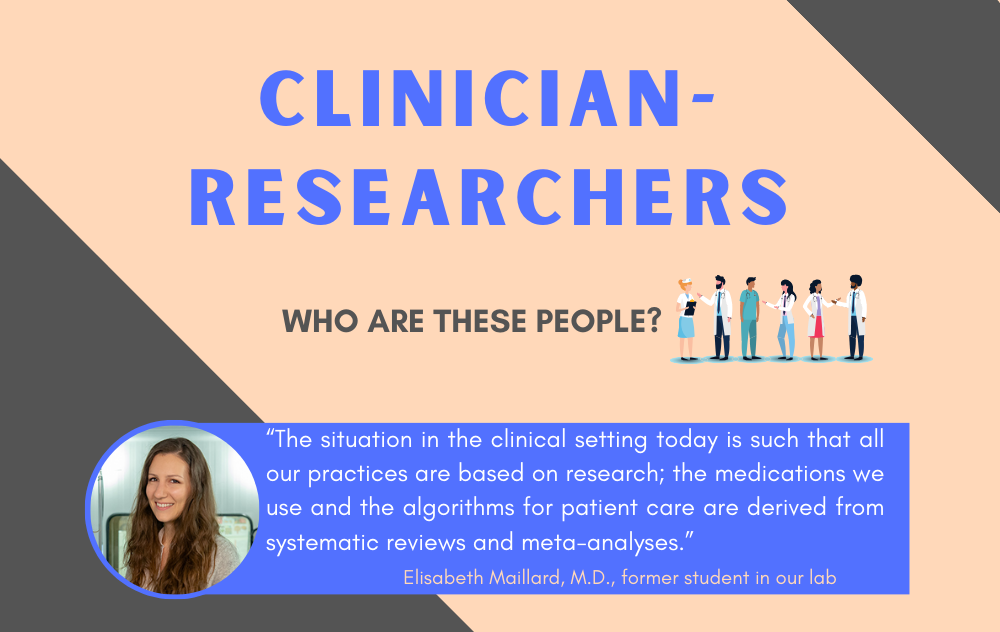
Do you know the expression ‘from bedside to bench and back’? It refers to the influence of clinical practice (that is, the work of healthcare professionals with their patients) on research, and vice versa.
At the center of this relationship are clinician-researchers: physicians, speech-language pathologists, audiologists, psychologists, occupational therapists, and many others.
Although the current training of students in the health sciences allows for the integration of scientific concepts and some exposure to the world of research, some future healthcare professionals decide to go further and obtain an additional degree in research, such as a master’s or a doctorate. Given their dual training, these clinician-researchers actively participate in research and thus play a crucial role in improving clinical practices for the benefit of patients [1]. This is the case of Elisabeth Maillard, who was a student in our lab. She decided to come from Switzerland to pursue training in research before starting a residency in medicine.
Elisabeth explains that “the situation in the clinical setting today is such that all our practices are based on research; the medications we use and the algorithms for patient care are derived from systematic reviews and meta-analyses.” Furthermore, she adds that physicians are constantly faced with questions about the use of new therapies or the current knowledge about certain diseases. Let’s not forget that medicine is constantly evolving, and that it benefits from technological and technical innovations.
Having research training allows the clinician:
- to have a critical look at their practice, thanks to an informed access to scientific literature. Indeed, research training teaches us how to objectively evaluate scientific articles and data, in terms of both their methodological quality and the impact of their results.
- to be an agent of change. Research training equips the clinician to conduct systematic reviews or meta-analyses, enabling them to evaluate the relevance of new therapies or clinical processes. They can also carry out their own research projects – for example, projects related to the use or development of new treatments, or fundamental projects aiming to clarify the understanding of diseases.
Congratulations to Elisabeth for her journey in our lab! Elisabeth has been able to reach the ultimate step of the scientific method, which is the publication of the results of her research project in a scientific journal. If having a research degree is not enough to become a clinician-researcher, this degree will certainly enrich Elisabeth’s future clinical practice.
[1] https://www.ipubli.inserm.fr/bitstream/handle/10608/9800/MS_2018_05_464.html?sequence=19&isAllowed=y
